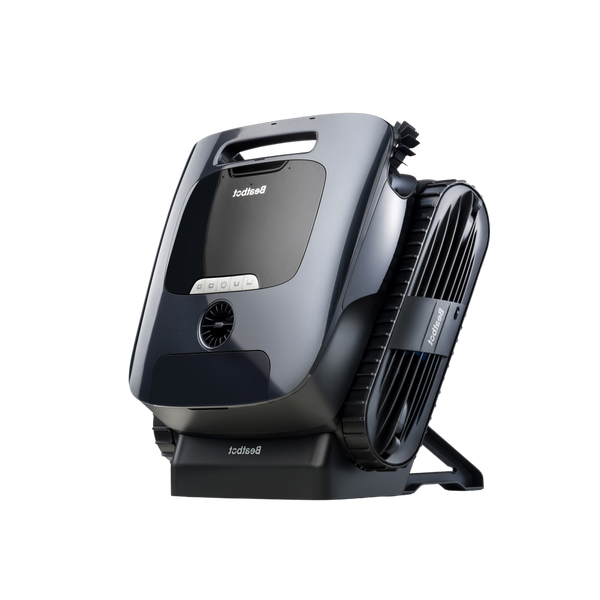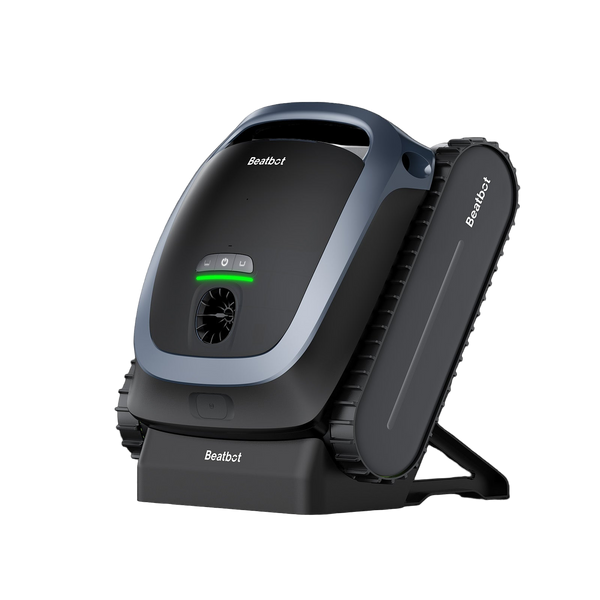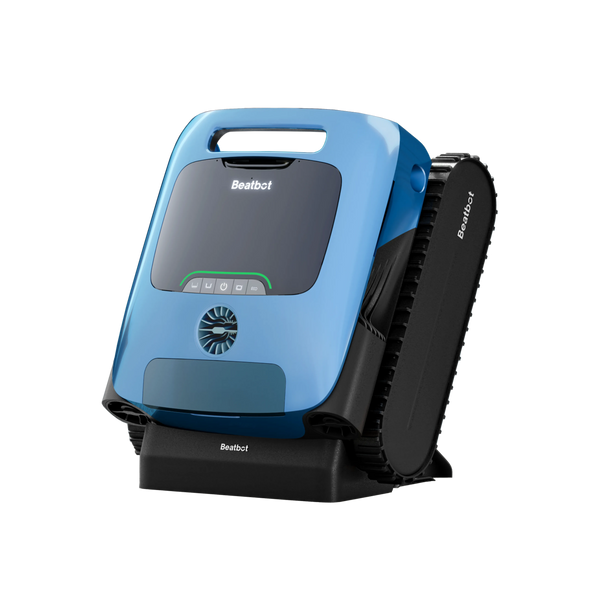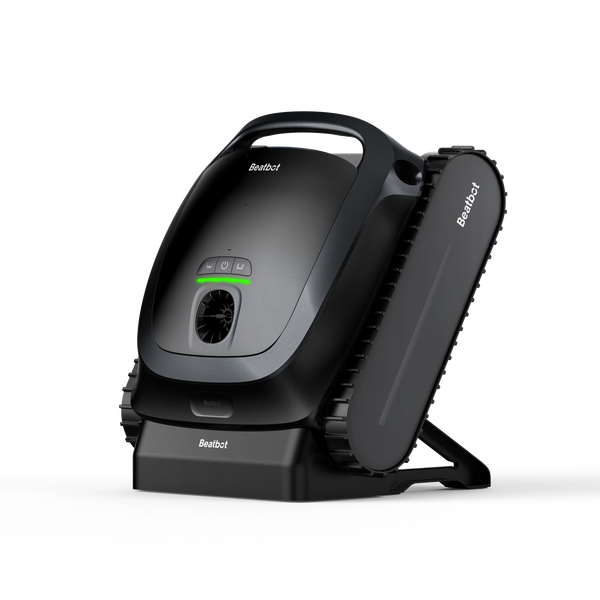Maintaining the Ideal Pool Temperature for Comfort and Safety
Introduction:
As winter approaches, many pool owners start neglecting their daily pool maintenance, let alone keeping the pool water at an ideal temperature. However, maintaining a good water temperature is crucial even during the off-season for swimming, as it not only achieves a perfect balance of warmth and comfort, enhancing everyone's swimming experience, but also aids in your daily pool maintenance, keeping your pool a refreshing oasis all year round. In this blog, we will explore the optimal pool temperature and tell you how to maintain it. Are you ready?
Table of contents
Determining the Ideal Swimming Pool Temperature
The optimal temperature for a swimming pool can differ based on various factors, including individual liking, local climate, and the intended purpose of the pool. Nevertheless, a widely accepted range for achieving comfortable swimming conditions is to maintain the water temperature somewhere between 78°F and 82°F (or 25°C to 28°C). This range generally suits most swimmers and ensures a pleasant experience in the water.
The Importance of Maintaining a Balanced Pool Water Temperature
Promotion of Chemical Balance
A balanced pool temperature is instrumental in maintaining the overall chemical balance of the water. When the water temperature is optimal, the pool's pH levels, alkalinity, and chlorine or bromine levels function more efficiently. This ensures that the water remains in a balanced state, further enhancing its safety and suitability for swimming.
Enhanced Safety and Comfort
The appropriate water temperature is crucial for the safety and comfort of swimmers, as it varies based on the user group. For instance, children and athletes may prefer different water temperatures. By adjusting the temperature to suit the specific needs, swimmers can enjoy a safer and more enjoyable swimming experience.
Tailored Temperature Ranges for Different Needs
General Comfort : The recommended water temperature for a comfortable and safe swimming experience typically ranges from 78°F to 85°F. This range caters to most swimmers but can be adjusted based on personal preferences and specific needs.
Younger Children and the Elderly : These groups generally need warmer water, with temperatures ranging from 84°F to 94°F. This ensures a comfortable environment that supports their unique health and safety requirements.
Fitness Swimming : For those swimming for exercise, cooler temperatures between 78°F and 84°F are often recommended. Cooler water can enhance endurance and performance, making it ideal for athletic training.
Ultimately, adjusting the pool's water temperature to match the needs of its users—be it for comfort, age, or activity—ensures a welcoming and safe environment for all swimmers.
Inhibition of Bacterial and Algae Growth
Maintaining an optimal water temperature serves as an effective defense against algae and bacterial growth. At the right temperature, the pool water becomes less hospitable for these microorganisms, reducing the risk of contamination and preserving the clarity and hygiene of the water. Additionally, it minimizes the evaporation of pool chemicals, ensuring their effectiveness.

How to Maintain Suitable Water Temperature
Pool Cover Utilization
When your pool is not in use, employing a pool cover can significantly aid in retaining heat and minimizing heat loss through evaporation. Opt for a durable and well-fitted pool cover to maximize its effectiveness in maintaining the pool's temperature. This simple yet effective measure can help you save on heating costs and extend your swimming season.In addition, it can hinder dirt from entering the pool, reducing the subsequent maintenance costs and saving you time and effort in using pool cleaners like skimmers and pool vacuums.
Utilizing a Pool Heater
If you reside in an area with cooler climates or wish to prolong your swimming season, investing in a pool heater is a wise choice. Pool heaters are available in diverse types, such as gas, electric, and solar, each capable of elevating the water temperature to your preferred level. Selecting the right heater for your pool will ensure that you can enjoy swimming even during colder weather.
How to Effectively Control Pool Water Temperature with a Heater-Chiller
A heater-chiller is an innovative solution designed to maintain optimal pool water temperatures, ensuring comfort regardless of the weather. These versatile devices work by either heating or cooling the water. Here's how they function both effectively and efficiently:
1. Dual Functionality:
Heating Mode: The heater-chiller extracts heat from the ambient air, using it to raise the pool's water temperature. This is particularly beneficial during cooler seasons when you want to extend your swimming season.
Cooling Mode: In contrast, during sweltering summers, the chiller function acts to draw heat out from the water, cooling it down to a more refreshing temperature.
2. Advanced Thermo Control Technology:
Modern heater-chillers come equipped with sophisticated thermo control systems. These technologies automatically adjust the pool's temperature, ensuring it remains consistent with your desired settings. This automation eliminates the need for manual monitoring and adjustments.
3. Energy Efficiency:
These devices are designed with energy efficiency in mind. By utilizing heat transfer processes that cycle the air's energy, heater-chillers can significantly reduce energy consumption compared to traditional heating methods.
4. Quiet Operation:
While some pool machinery can be noisy, many heater-chillers operate quietly, ensuring your poolside experience remains peaceful and enjoyable.
By employing a heater-chiller, you’re not just investing in a means to control your pool’s temperature; you’re enhancing your outdoor living experience with a reliable and efficient solution. This ensures your pool is always ready for a swim, regardless of the season.
Monitoring Water Temperature
Regularly checking the water temperature of your pool using a reliable pool thermometer is crucial. Maintaining the water within the recommended temperature range will ensure optimal comfort and enjoyment for swimmers. By keeping track of the temperature, you can make necessary adjustments to the heating settings to maintain a consistent and comfortable swimming environment.
Incorporating Solar Heating
Solar heating systems leverage the power of sunlight to heat pool water naturally. Installing solar panels or solar blankets can supplement your pool heating efforts, reducing energy costs and minimizing environmental impact. This eco-friendly option can help you enjoy a warm pool while contributing to sustainability.
Balancing Chemical Levels
Properly balanced chemical levels are vital for maintaining water clarity, cleanliness, and comfort. Regularly test and adjust pH, chlorine, alkalinity, and calcium hardness levels to ensure optimal water quality. This will not only enhance your swimming experience but also protect your pool equipment and extend its lifespan. By maintaining balanced chemical levels, you can ensure that your pool remains a safe and enjoyable place to swim.
Relative Blogs
About the author



















